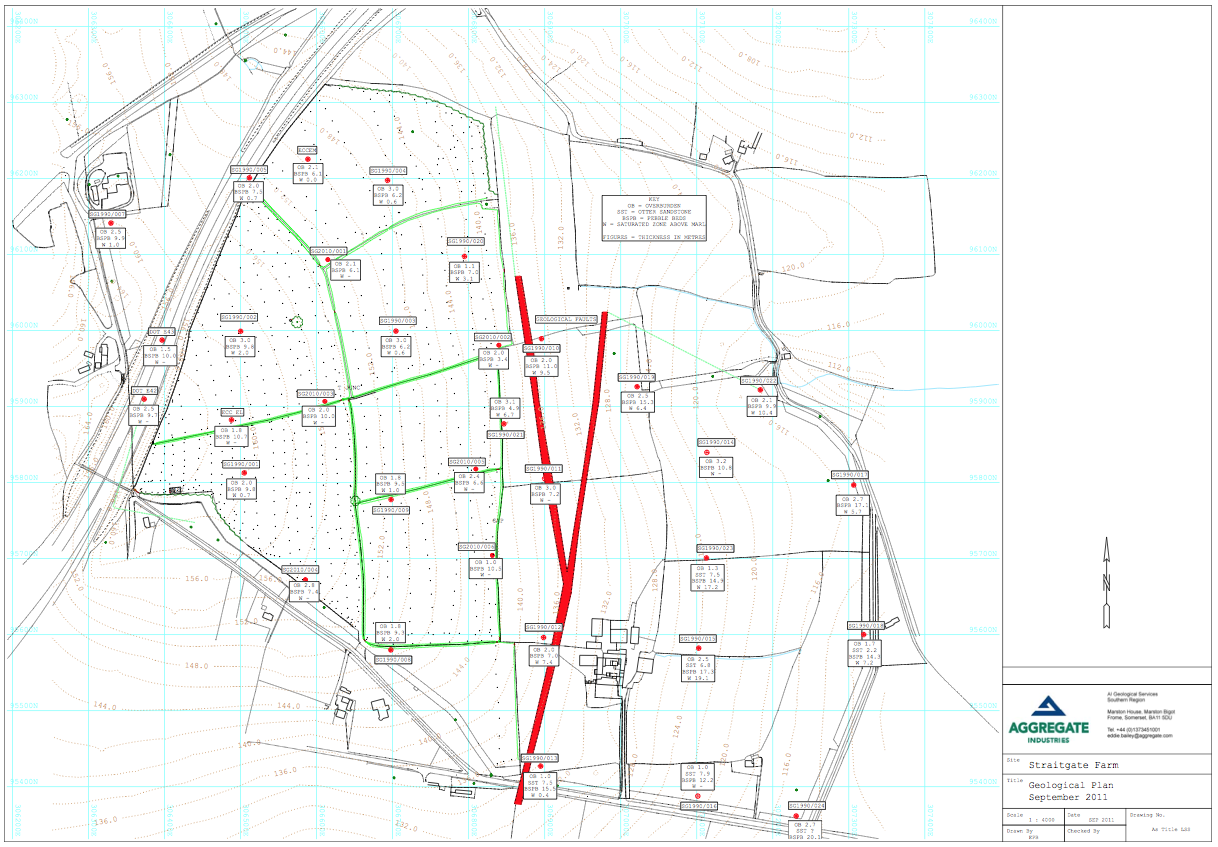An Aggregate Industries’ spokesman has confirmed that digging of the 55 trenches referred to earlier will now start next week. The 1.8m wide trenches will be in the range of 50-100m (not 30-50m as we had been told by a DCC archaeologist) and will total just under 3500m in length. They will comprise 2% of the revised site, giving the new area now being proposed at approximately 31.5 hectares, including haul roads, tree planting, overburden storage etc.
This now confirms that AI is only intending - and only ever intending - to quarry to the west of the geological fault line that runs through Straitgate Farm. Taking standoffs into account, this now gives a quarryable area of no more than 25 hectares. The mean thickness of the pebble bed deposit in this area above the water table is 5.2m giving a net recoverable resource of less than 2 million tonnes.
Even this figure excludes resource lost for face angles, and extra standoff from properties on the west of the site that may need to be made following noise assessments. Restricting excavation to "1 metre above the maximum level of the water table", as AI was forced to do at Thorn Tree Plantation at Blackhill Quarry, would reduce that figure by a further 0.4 million tonnes.
Two million tonnes is little more than a quarter of the figure put forward in AI’s September 2011 geological statement of 3.5Mt in phase 1 and 3.8Mt in phase 2. It was a point we made at the start of 2013 in DCC is overstating the 'recoverable' resource at Straitgate by more than 50%.
Two million tonnes is little more than a quarter of the figure put forward in AI’s September 2011 geological statement of 3.5Mt in phase 1 and 3.8Mt in phase 2. It was a point we made at the start of 2013 in DCC is overstating the 'recoverable' resource at Straitgate by more than 50%.
Of course, AI is still hoping to quarry below the water table and is “confident that the proposed design won’t have an impact on groundwater”. However, it will be the Environment Agency that will be the arbiter of that call - for the 3 working farms and 100 people around the site who rely on the area for their drinking water, and for the wetland habitats in the ancient woodlands. And it will be Exeter Airport that decides whether ponding and wet grasslands that attract birds is something it wants just beneath aircraft landing at Exeter Airport.
Many people will understandably wonder why profit-hungry Swiss-parent Holcim - a company currently focusing on improving its return on invested capital to above 8% - would be driven to sanction the cost of consultants, surveys, investigations, reports, planning applications, appeals, etc, etc - and the cost of moving processing plant - all for the chance of winning less than 6 years' supply of low-margin aggregate.
 |
| © Aggregate Industries UK Limited |
 |
| freemaptools.com |